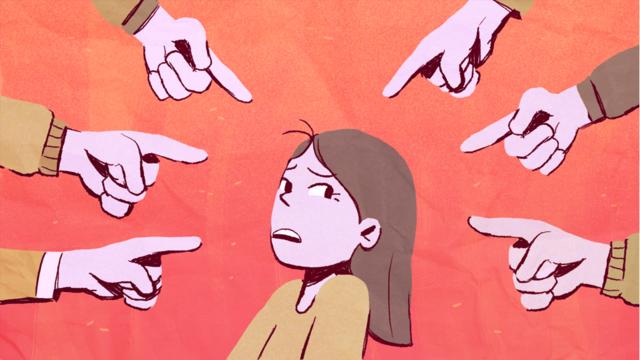Challenging Prejudice at WHS
January 31, 2019
Challenging Prejudice at WHS
“Prejudice is a learned trait. You’re not born prejudice; you’re taught it.” -Charles R Swindoll. Teenagers tend to say things without thinking about it first and tend to think before we know. We feel the need to blend in with everyone around us because it is scary to stand out. We are afraid we will be judged because that is what everyone does; judge people by their cover, rather than getting to know them first. Learning how to challenge prejudice in productive ways is surprisingly easy.
Living in a small town tends to make it hard to be an individual. When people have been sheltered from different opinions and ways of thinking for so long, they more often than not form some type of prejudice about that certain topic. All of the students in a small town, like Williston, somehow manage to mirror each other, changing opinions so they “fit in” with a certain group of people. Students no longer have the confidence to admit that they think something different than another person. They hear something and automatically think that is how things should be. People have become so prideful in what they think is right they don’t stop to listen to reason. We (students) just feel that it is easier to judge others than admitting our own faults. It is like we are afraid of being different because we know how people who are different are treated. We hide rather than embracing our individuality, we hide behind something we think is wrong or something we disagree with, just so people we won’t know forever will like us. Seems kind of pointless doesn’t it?
You see, the way that we are taught makes it easier to sort people into boxes, instead of actually getting to know them for who they are. All of our opinions are dependent on the culture we grew up in. In small towns, all people have known is how to look at someone and decide right then and there how to feel about them. They are new or different so that gives us the right to judge and ridicule. Society has taught us to be lazy with our perceptions of people. Laziness plays a role in assumptions, and assumptions lead to misconceptions. We stop caring about if we are correct as long as it sounds pretty; as long as someone is listening, we will keep talking, regardless of the truth.
Prejudice is the result of one of three things. 1) ignorance. 2) being naive or 3) being misinformed or not educated on a subject. William Hazlitt said “prejudice is the child of ignorance” he means that refusing to accept new information to protect your version of the truth is how we continue to allow people to justify showing hate to another group. If we all change something small today, tomorrow we will have a different world. By educating ourselves and keeping an open mind we will make a difference.
Everyone wants you to adapt to fit a standard or “normal”, and those of us who don’t are labeled as “outcasts” or “weirdos”. This is a method of boxing people up and it is outdated and hurtful. Listening to others opinions we too often mistake it for unimportant and the cycle needs to stop. Nothing will ever be accomplished if we do not stop talking and start listening to others and actually hearing what they are trying to say. We can change the world, however small of a difference it makes, something still happened. We still fought for change. That is how we challenge prejudice. We strive to make a difference, and eventually, we will.

